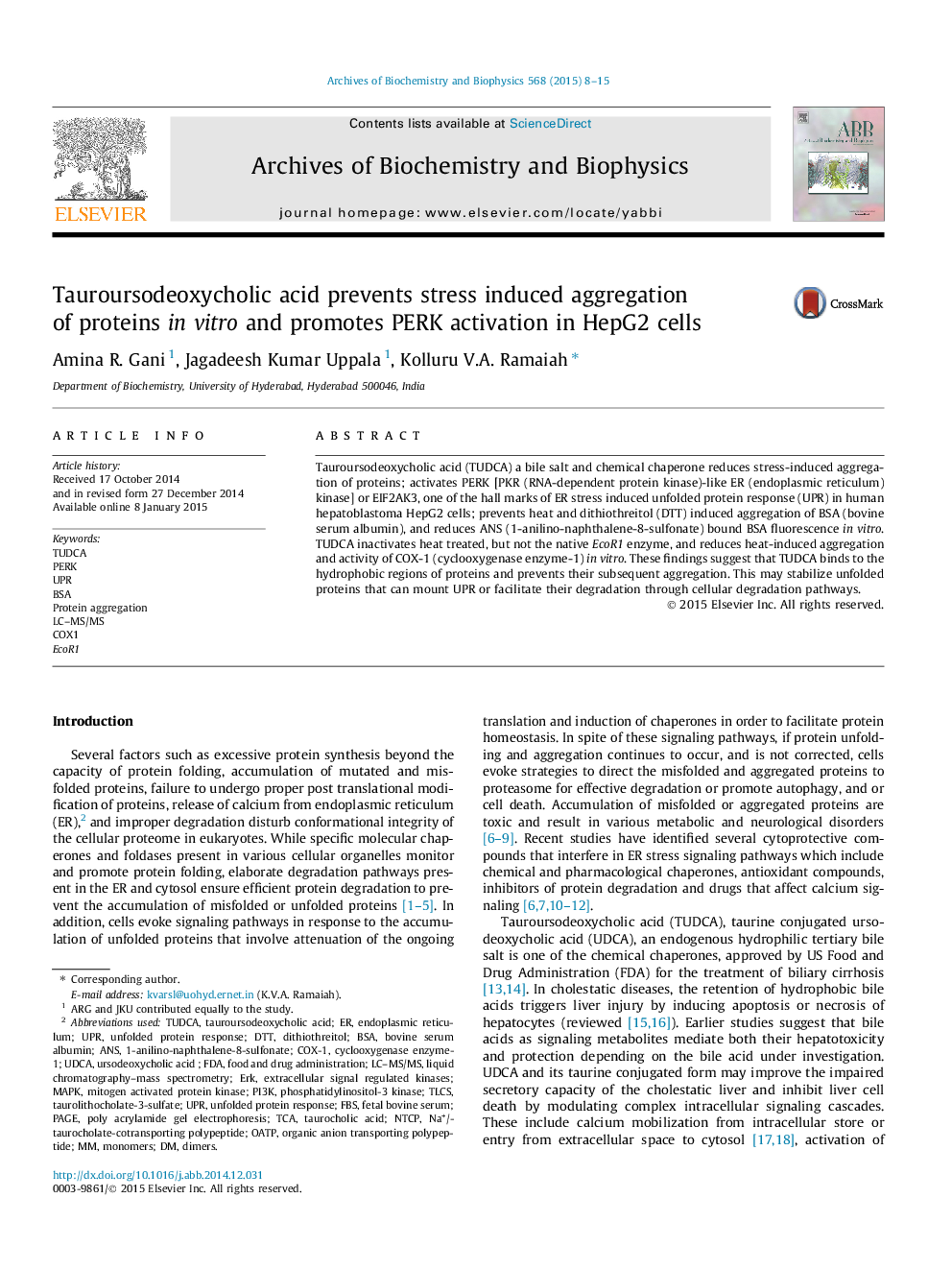| Article ID | Journal | Published Year | Pages | File Type |
|---|---|---|---|---|
| 1925008 | Archives of Biochemistry and Biophysics | 2015 | 8 Pages |
•TUDCA prevents but cannot reverse heat and DTT induced aggregation of BSA in vitro.•TUDCA reduces stress induced aggregation of proteins in HepG2 cells.•TUDCA activates PERK, an eIF2α kinase of the endoplasmic reticulum in HepG2 cells.•TUDCA promotes or enhances PERK activation in UV- and tunicamycin treated cells.•TUDCA inhibits thermal aggregation but not inactivation of COX-1 and EcoR1 in vitro.
Tauroursodeoxycholic acid (TUDCA) a bile salt and chemical chaperone reduces stress-induced aggregation of proteins; activates PERK [PKR (RNA-dependent protein kinase)-like ER (endoplasmic reticulum) kinase] or EIF2AK3, one of the hall marks of ER stress induced unfolded protein response (UPR) in human hepatoblastoma HepG2 cells; prevents heat and dithiothreitol (DTT) induced aggregation of BSA (bovine serum albumin), and reduces ANS (1-anilino-naphthalene-8-sulfonate) bound BSA fluorescence in vitro. TUDCA inactivates heat treated, but not the native EcoR1 enzyme, and reduces heat-induced aggregation and activity of COX-1 (cyclooxygenase enzyme-1) in vitro. These findings suggest that TUDCA binds to the hydrophobic regions of proteins and prevents their subsequent aggregation. This may stabilize unfolded proteins that can mount UPR or facilitate their degradation through cellular degradation pathways.
